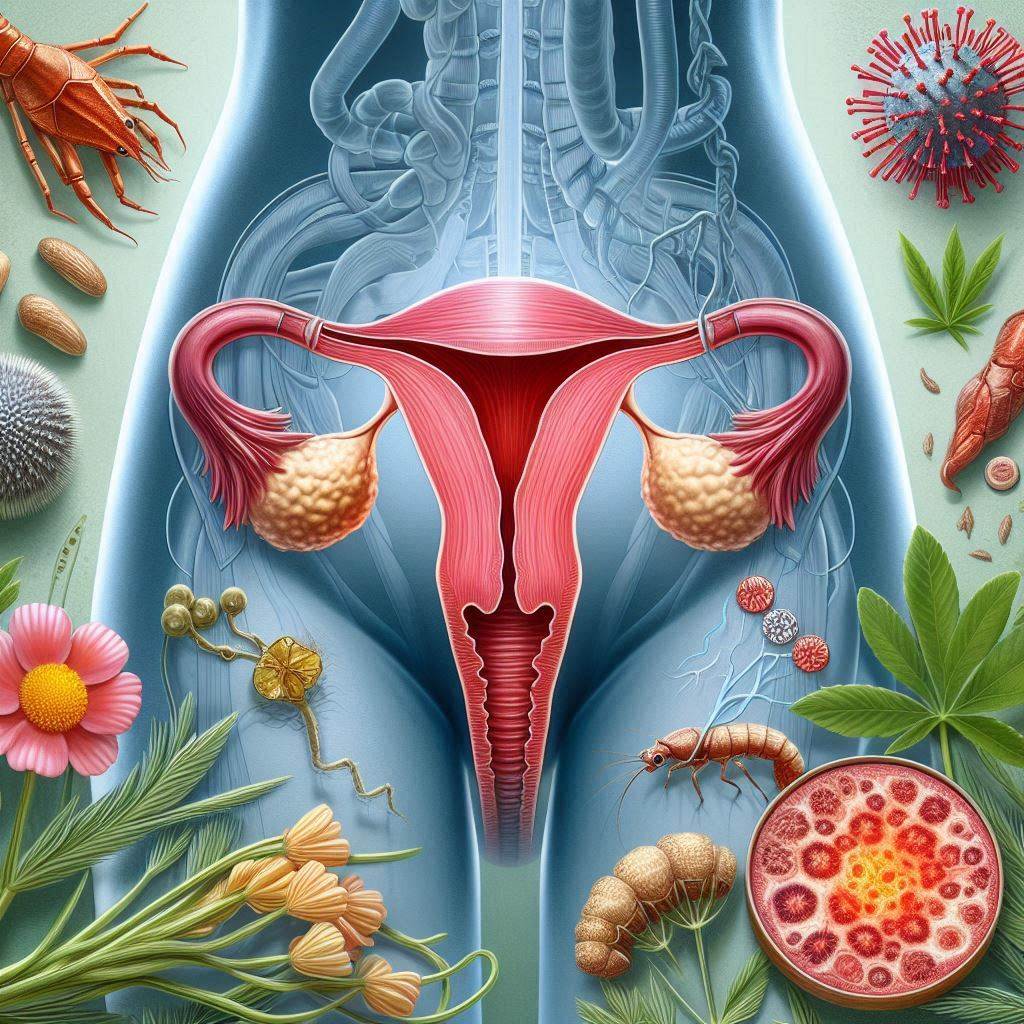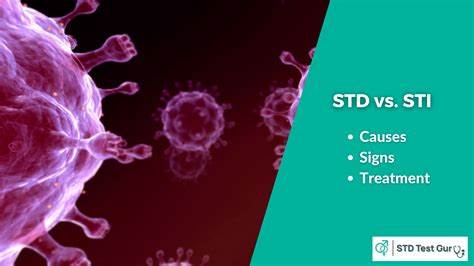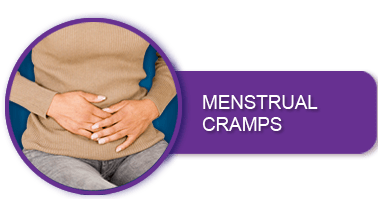Pelvic Inflammatory Disease (PID) – Symptoms Causes and Treatment with Traditional Medicinal Plants.
Pelvic Inflammatory Disease (PID) is an infection of the female reproductive organs, including the uterus, fallopian tubes, and ovaries. It is most commonly caused by sexually transmitted bacteria, such as those responsible for gonorrhoea and chlamydia.
What are the Symptoms of Pelvic Inflammatory Disease (PID)
Pelvic Inflammatory Disease (PID) can present with a variety of symptoms, some of which may be mild or even asymptomatic. Here are the most common symptoms:
- Lower abdominal pain: This is often the most prominent symptom.
- Unusual vaginal discharge: This may have an unpleasant odour.
- Painful urination: Discomfort or pain while urinating.
- Fever: Sometimes accompanied by chills.
- Pain during intercourse: This can be particularly noticeable during deep penetration.
- Irregular menstrual bleeding: This can include spotting or bleeding between periods.
- Fatigue: General feeling of tiredness or malaise.
If you experience any of these symptoms, it’s important to seek medical attention promptly to prevent complications.
What are the Causes of Pelvic Inflammatory Disease (PID)
Pelvic Inflammatory Disease (PID) is primarily caused by bacteria that travel from the vagina to the reproductive organs. Here are the main causes:
Common Causes
- Sexually Transmitted Infections (STIs): The most common bacteria causing PID are those responsible for gonorrhoea and chlamydia.
- Unprotected Sex: Engaging in unprotected sex increases the risk of contracting STIs that can lead to PID.
Other Causes
- Post-Childbirth or Abortion: PID can sometimes occur after childbirth, an abortion, or a miscarriage.
- Douching: This practice can push bacteria into the reproductive organs, increasing the risk of infection.
- Intrauterine Device (IUD): In rare cases, the insertion of an IUD can introduce bacteria into the reproductive tract.
Risk Factors for Pelvic Inflammatory Disease (PID)
Several factors can increase the risk of developing PID:
- Multiple Sexual Partners: Having multiple sexual partners or a partner who has multiple partners.
- Unprotected Sex: Not using condoms during sexual intercourse.
- Age: Being sexually active and younger than 25 years old.
- History of STIs or PID: Previous infections with sexually transmitted infections (STIs) or a history of PID.
- Douching: Regular douching can disrupt the balance of good and harmful bacteria in the vagina.
- Recent Pelvic Procedures: Having had a pelvic procedure, such as an IUD insertion or an abortion.
Complications of PID
If left untreated, PID can lead to several serious complications:
- Infertility: Damage to the reproductive organs can make it difficult or impossible to become pregnant.
- Ectopic Pregnancy: Scarring from PID can cause a fertilized egg to implant outside the uterus, which is a life-threatening condition.
- Chronic Pelvic Pain: Persistent pain in the lower abdomen can occur due to ongoing inflammation and scarring.
- Abscesses: Collections of pus can form in the fallopian tubes or ovaries, requiring surgical intervention.
Preventing PID involves practising safe sex, getting regular STI screenings, and avoiding douching.
Treating PID with Herbal Plants
Herbal treatments can be a supportive approach to managing Pelvic Inflammatory Disease (PID) alongside conventional medical treatments. Here are some commonly recommended herbs and natural remedies:
Herbal Remedies
- Stone Breaker Plant
2. Thorn apple Plant (Solanum incanum)
3. Hyssop
Others are
- Garlic: Known for its antibacterial properties, garlic can help fight infections. It can be consumed raw or in supplement form.
- Turmeric: This herb has anti-inflammatory and antimicrobial properties. Adding turmeric to your diet or taking it as a supplement can help reduce inflammation and fight infection.
- Echinacea: Often used to boost the immune system, Echinacea can help the body fight off infections.
- Neem: Neem capsules or extracts are used in Ayurvedic medicine for their antibacterial and anti-inflammatory properties.
- Nirgundi Oil: This oil is applied topically to reduce pain and inflammation.
Home Remedies
- Yoghurt: Consuming yoghurt with live cultures can help maintain a healthy balance of bacteria in the body.
- Warm Compress: Applying a warm compress to the lower abdomen can help alleviate pain and discomfort.
Lifestyle Tips
- Boost Immunity: Maintain a healthy diet rich in vitamins and minerals to support your immune system.
- Avoid Douching: This can disrupt the natural balance of bacteria in the vagina and push harmful bacteria into the reproductive organs
Prevention of PID
Preventing Pelvic Inflammatory Disease (PID) involves several key measures aimed at reducing the risk of infection and maintaining reproductive health. Here are some effective preventive strategies:
Preventive Measures
- Practice Safe Sex:
- Use Condoms: Always use condoms during sexual intercourse to reduce the risk of sexually transmitted infections (STIs) that can lead to PID.
- Limit Sexual Partners: Having fewer sexual partners can reduce the risk of contracting STIs.
- Regular STI Screenings:
- Get Tested: Regular screenings for STIs, especially if you have multiple partners, can help detect infections early and prevent them from progressing to PID.
- Partner Testing: Ensure that your sexual partners are also tested and treated for STIs.
- Avoid Douching:
- Maintain Natural Balance: Douching can disrupt the natural balance of bacteria in the vagina and push harmful bacteria into the reproductive organs.
- Prompt Treatment of Infections:
- Seek Medical Attention: If you suspect you have an STI or any symptoms of PID, seek medical treatment promptly to prevent complications.
- Vaccinations:
- HPV Vaccine: Consider getting vaccinated against the human papillomavirus (HPV), which can reduce the risk of certain infections.
- Education and Awareness:
- Stay Informed: Educate yourself and your partners about the risks of STIs and the importance of safe sexual practices.
By following these preventive measures, you can significantly reduce your risk of developing PID and maintain better reproductive health.
External links
What is Pelvic Inflammatory Disease(PID)
Medicinal Plants As An Alternative For Treating Pelvic Inflammatory Disease
(PDF) Medicinal Plants As An Alternative For Treating Pelvic Inflammatory Disease (researchgate.net)
Preventing Pelvic Inflammatory Disease (PID)









Review Pelvic Inflammatory Disease (PID).
You must be logged in to post a review.